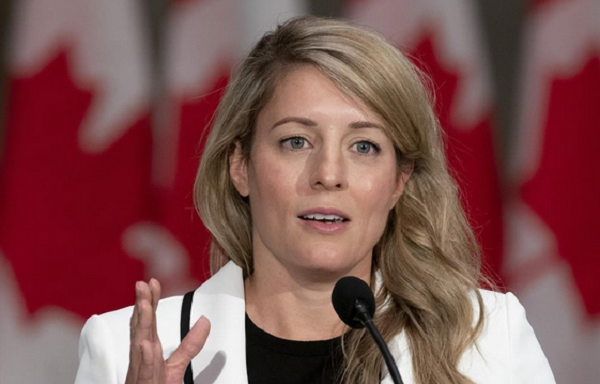Education group worries about Canada’s image on foreign students
Canada needs to restore public confidence in its international education program here and abroad, and build a new brand to remain a destination of choice for foreign students, says the leading voice for the country’s international education sector.
On the eve of a national conference in Ottawa, the head of the Canadian Bureau for International Education said its 2023 international student survey has shown some worrying signs that challenge Canada’s image as a safe, stable and welcoming place as a result of the recent public backlash and drastic changes to the international student program.
“We’re losing sight of the tremendous value that comes with global talent coming to learn in our communities,” the bureau’s president and CEO, Larissa Bezo, said in an interview Tuesday. “We feel that there’s work that needs to be done to rebuild that understanding and to rebalance.”
The national advocacy group, representing learning institutions from school boards to colleges and universities, will host the by-invitation-only inaugural conference on Wednesday and Thursday to chart a path for a sustainable and responsible international education sector.
The two-day event will bring together senior leaders in government, business associations and school communities, as well as international students themselves, to get clarity on the objectives of the international education program and come up with a plan to meet those goals.
“We need to be building some consensus in terms of where we’re going and what the offering is, and also to build some understanding and shared agreement around what our policy objectives are in having an international student program,” said Bezo.
The ultimate goal, she added, is to build a new brand that explicitly speaks to the “shared ownership and shared purpose” in what Canada is trying to achieve through its highly successful international student program that has been an envy of the world, until now.
The housing crisis and economic uncertainty have put Canada’s runaway growth of foreign enrolment on the spotlight in the past year, prompting Immigration Minister Marc Miller to overhaul the highly lucrative international student program, which supports 220,000 jobs and contributes $22 billion a year to the Canadian economy.
Calling out some schools running as diploma mills, Miller has put a two-year cap on the number of new study permits issued, dropping by 28 per cent from 404,668 in 2023, and rolled out changes to limit access to post-graduation work permits, an incentive that made Canada a popular destination.
Bezo said those abrupt changes have wreaked havoc, forcing many institutions to make difficult choices to stay afloat.
Rather than investing in recruitment in emerging markets in Africa, some schools may have to focus on markets with higher student visa approval rates so they don’t waste their rationed study permit spots. Some institutions such as Ontario’s Fleming College have had to resort to terminating academic programs and laying off staff, while others have to downsize admissions to their research and exchange programs to save the space for longer-term students.
“As Minister Miller acknowledged, it was a hammer,” said Bezo. “It wasn’t a fine scalpel. It’s obviously having impact.” Bezo’s organization still doesn’t have a full sense of what the fall intake will look like.
“There’s certainly work to do. We recognize that. The question for us is … coming out of this, what concretely can we do to ameliorate the situation and to put us on a more sustainable footing.”
Preliminary results of the Canadian Bureau for International Education’s 2023 annual survey have shown the weakening strength of the Canadian brand as a safe, stable and welcoming place for international students, even though there’s an increase in students valuing the work experience related to their studies.
Bezo said so far Canada has done little to reach out to prospective international students abroad other than giving technical instructions, and the sector is starting to see an impact in the overall interest and demand in Canada from a number of markets.
“We have been silent and in that echo chamber internationally, assumptions are being made,” she said. “We can see that shift.” She added that Canada needs to send the message out that the country “continues to be open and desiring of hosting international students … and willingness to support them in their journeys and hopes and dreams for the future.”
With more changes anticipated to postgraduation work permits and the kickoff of the “recognized institution” system to fast-track study applications for select schools, Bezo hopes the conference can bring all players out of silos for a consistent approach to international education.
“One of the things that, from our perspective, Canada has not gotten right is we don’t take a comprehensive approach to international education in this country,” she said, noting that the portfolio falls under trades in the federal government.
“We’re not thinking about knowledge diplomacy. We are not connecting to science and innovation. I don’t think we’re going to solve all of that, but (part of the conference) will be about trying to bring clarity to the different policy threads.”
This article was first reported by The Star












